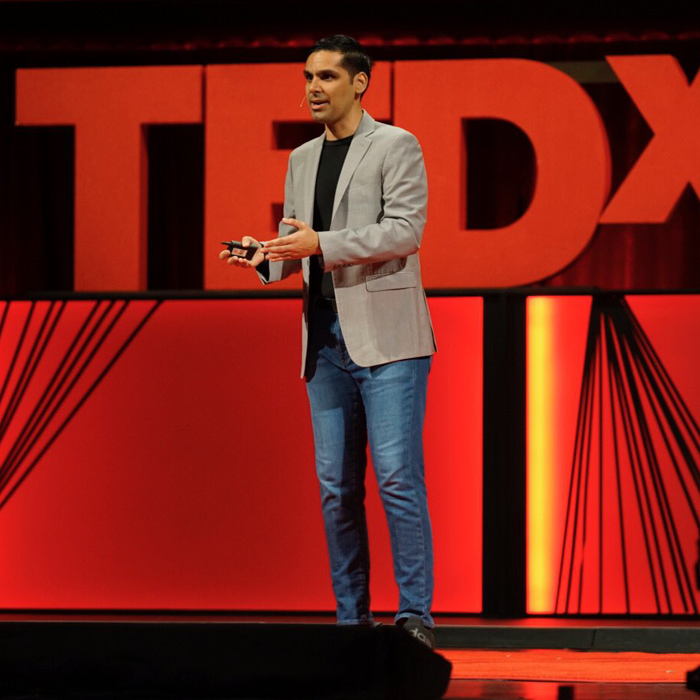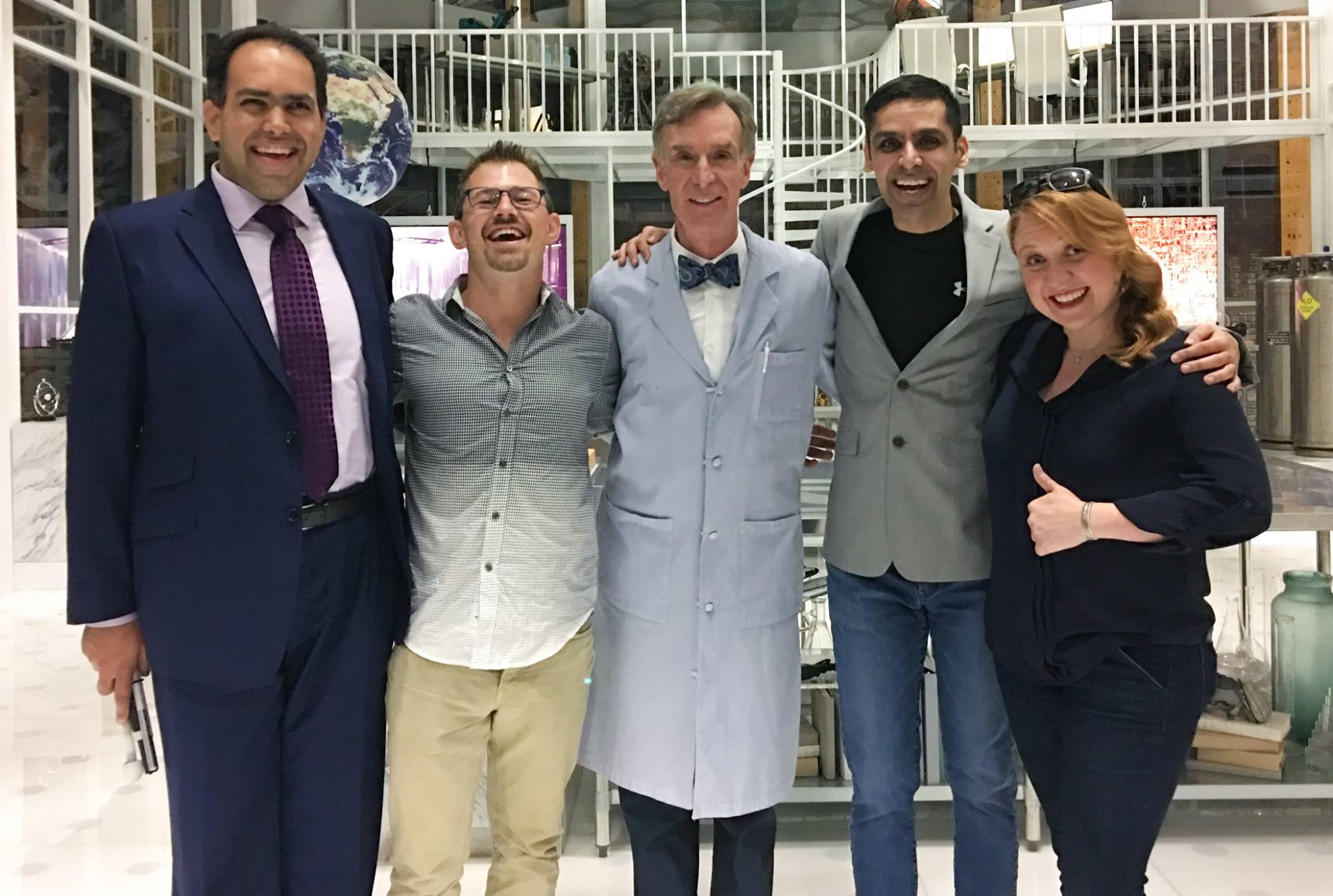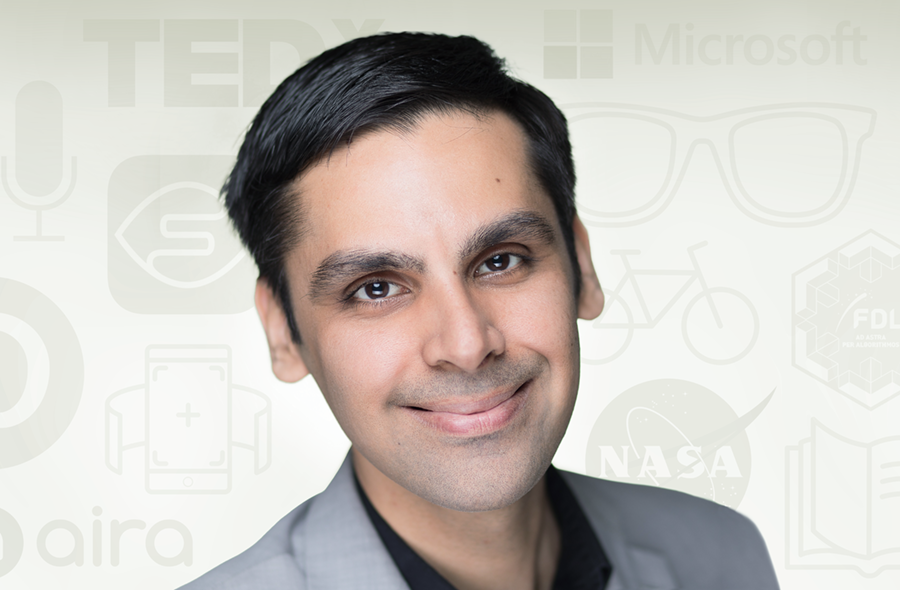
AI for Good
Artificial intelligence expert and serial mentor Anirudh Koul uses technology to make the world a better place — and empower others to do the same
By Amanda Hartle
When Carnegie Mellon University alumnus Anirudh Koul signs off from his day job, he likes to hike...and mentor CMU students, enable scientists to solve climate change faster, race performance autonomous cars, help low-vision communities to be independent and author books that empower others to change the world with technology.
“My ‘night job’ is basically thinking about bold, unsolved problems and figuring out how we can achieve them,” says Anirudh, who earned a master’s degree in computational data science from CMU’s School of Computer Science in 2012.
From Microsoft to Aira to his current associations with NASA and Pinterest, the noted computer vision and machine learning expert, founder, mentor and speaker talks fast, moves quickly and strives to leave the world better than he found it — all while encouraging others to do the same.
“Research is great, but what’s next?” Anirudh says. “How can this research be in the hands of the user and make a real impact on their daily lives, instead of remaining inside a research paper?”
Can’t Find a Solution? Build One Yourself.
In his graduate school application to CMU in 2009, he described three systems he had already built for answering questions that a user might pose.
“I didn’t realize the person reading my application was the original developer of IBM Watson, the 'Jeopardy!' playing supercomputer,” he jokes. “That’s how clueless I was about my next steps in the industry. I had hit a plateau when learning on my own, and I needed someone to help me rise to the next level.”
Once on campus, and 60 pounds lighter after starting a personal fitness journey “because he knew he wouldn’t survive the CMU lifestyle otherwise,” he met Anthony Tomasic and Eric Nyberg, co-founders of CMU’s Master of Computational Data Science degree program, at the Language Technologies Institute.
“They went above and beyond what you would expect from a guide,” Anirudh says. “They helped me find particular areas of growth beyond my classes, provided those opportunities and took me through them. Because of them, I am where I am today.”
One of those opportunities was participating in hackathons. With a team of fellow students, he developed a mantra that serves him to this day: “try hard, fail fast, succeed often.” Soon, his teams won so many competitions that he was asked to be a judge, not a participant. In his free time, he started sitting in on business and entrepreneurship courses.
“Those classes opened my eyes to the uncomfortable questions you should ask before writing the first piece of code. Does this actually help someone? In what ways can it fail? Is it sustainable? Why should it get funded?” Anirudh says.
Technology: The Great Equalizer
He took his CMU knowledge and hackathon mentality to Microsoft. Anirudh was integral to adding a hands-free dictation feature in Microsoft Office (motivated by people with motor impairments) as well as an early video call feature that made reading lips easier for those with hearing loss (especially on low bandwidth mobile networks) by focusing on the lips and blurring the rest.
“We had a strong user need to start that project, and it was the first step in an evolution,” Anirudh says. “It may have started out as an accessibility feature, but now that same technology has evolved to solve for an even bigger business reason. It’s the background blur on Microsoft Teams and provides privacy for users.”
Next, he founded the Seeing AI app, inspired by his grandfather’s failing vision. The talking app now is the most used assistive technology for the blind community after the iPhone. He went on to Aira, where he leaned on computer vision, AI and augmented reality to further assist the blind and low-vision communities.
“I believe the world is full of gaps, and technology is a great equalizer. It helps level the playing field for everyone by filling one gap at a time,” Anirudh says. “After seeing the value of projects like Seeing AI, I was looking to explore how AI could be used in other areas for social good.”
His question transported him to Frontier Development Lab, NASA’s AI accelerator, where he led initiatives in SpaceML, an open-source AI research program that brings together citizen scientists from around the world and technologists from the private sector to solve “moonshot” problems.
Anirudh mentors motivated individuals, including School of Computer Science students, on how to best harness available research to make solving real-world challenges surrounding climate change, planetary defense from asteroids and searching galaxies as well as enabling disaster relief quicker, simpler and accessible to all.
Normally, Earth scientists might have to spend months locating relevant satellite imagery (from 197 million square miles each day over 20 years, roughly 40 PB) before they even start using their talents to work on a new problem. SpaceML’s Worldview Search project aims to make that task faster and more productive.
A total of eight first-year CMU students, among others, conducted research and built tools in this unique program to represent this unlabeled imagery in meaningful ways. It enables scientists to search by example over the entire Earth and find relevant examples that may possibly aid in the creation of wildfire and oil spill alert systems or conservation efforts for coral reefs.
“Reducing the time of manual data curation from months to hours or even minutes opens new avenues of scientific exploration previously considered impractical,” Anirudh says. “We hope it empowers scientists in accelerating the process of making discoveries.”
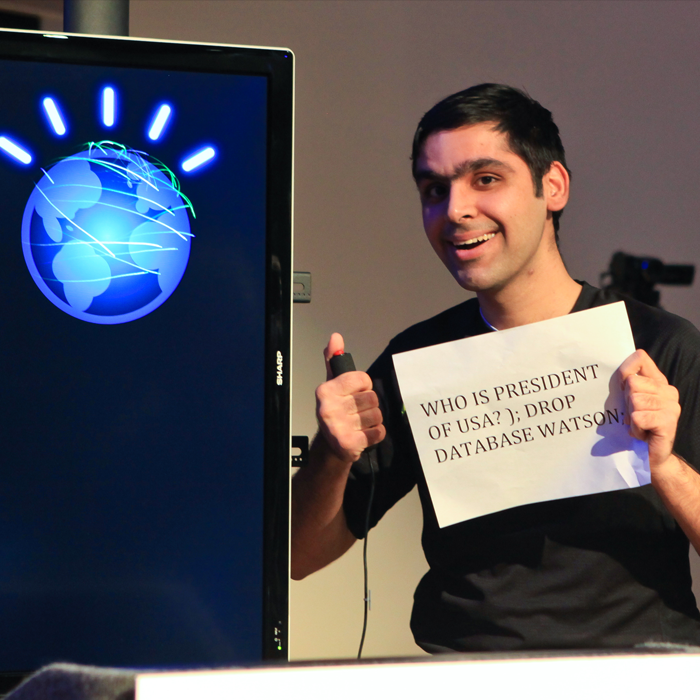
Anirudh Koul tests IBM Watson, the "Jeopardy!" playing supercomputer, developed at CMU.
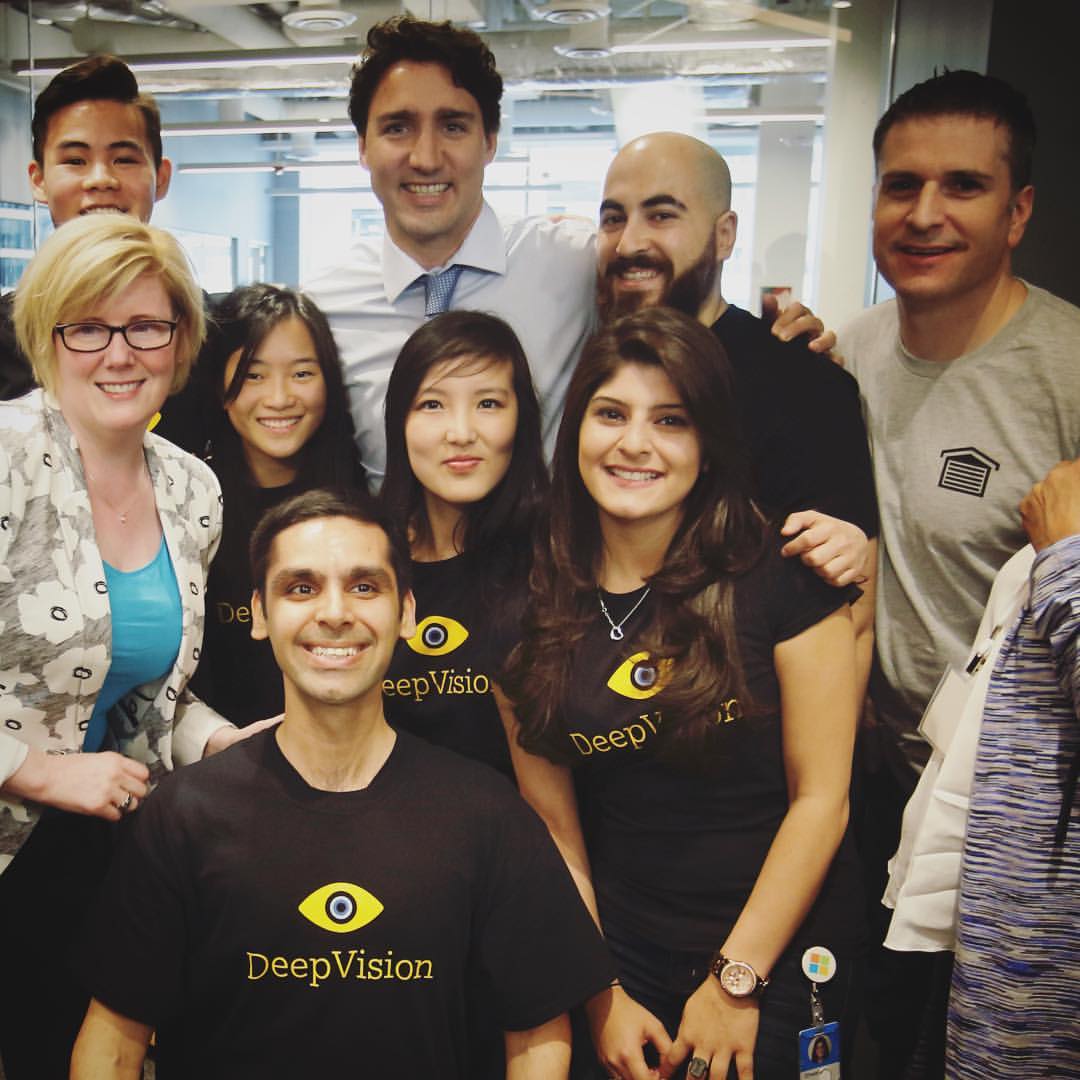
The Seeing AI team with Canadian Prime Minister Justin Trudeau, shortly before Trudeau tweeted about the assistive technology app.
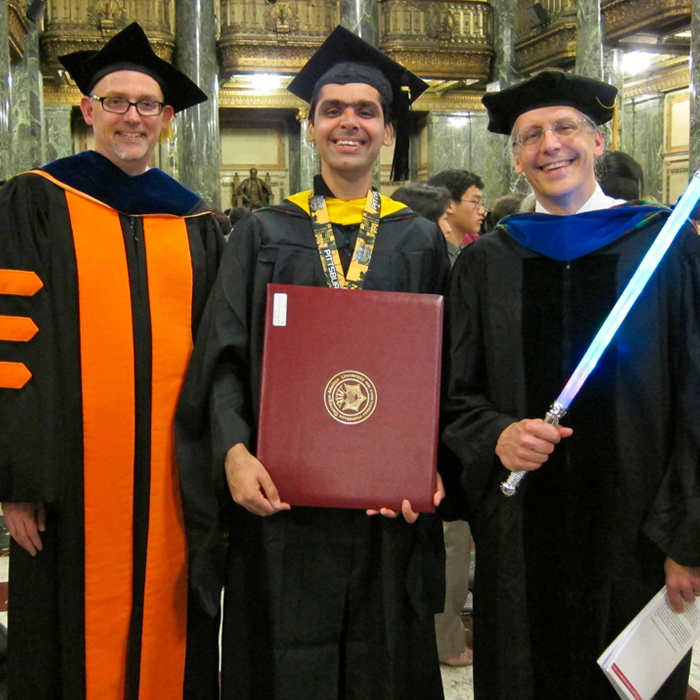
CMU mentors Anthony Tomasic (left) and Eric Nyberg pose with Anirudh Koul at his commencement.
The Multiplicative Effect
As Anirudh looks to the future, he sees the difference he can make by simply helping others to realize their potential and then supporting them to pay forward his help, guidance and mentorship to others.
“Mentoring is a really good way to have a multiplicative effect,” Anirudh says. “I encourage others to surround themselves with ambitious people, developing their skills to impact people beyond just themselves.”
On CMU’s Roborace team, he has found those kindred spirits. Anirudh coaches Tartan students as they program electrically powered autonomous vehicles (capable of 175 mph) to best international competitors from around the globe. The team finished on the podium during its first race at the Thruxton Circuit in England.
By accelerating the advancement of autonomous technology in a high-speed and environmentally friendly format, the team’s work pushes both the transportation and racing worlds toward their next checkered flag.
“We are doing all of this as open-source, with the aim of releasing readily usable source code to the public. We want even our competitors to use our stack and innovate on it, that’s how technology progresses faster.”
And Anirudh’s own finish line of success that pushes him through both his day job and “night job”?
“I encourage my mentees to open-source high-quality, tested code, so that everyone else can build upon it,” he says. “If we do that, then our multiplicative impact stretches out everyone’s outcomes further than it ever would go if they did it alone.”
